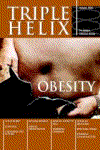Jesus summed up God's demands on mankind in two key commands: 'Love the Lord your God with all your heart and with all your soul and with all your mind' and 'Love your neighbour as yourself'.[1] Jesus fulfilled both perfectly in making it his supreme objective to do the will of his Father and by adopting an attitude of service towards other people.
Jesus did not insist on his rights as the unique Son of God: 'For even the Son of Man did not come to be served, but to serve.'[2] He undertook the menial task of washing his disciples' feet,[3] he made time for children, and was angry when his disciples tried to prevent them coming to him.[4] He did not seek to boost his importance by surrounding himself with a protective wall of intermediaries. He didn't play 'hard to get'. Rather, he made himself available to the outcasts of society; he touched lepers and welcomed prostitutes.
Jesus accepted interruptions as an integral part of God's plan and direction for his life.[5] He was often surrounded by patients and their friends clamouring for his attention.[6,7] Yet he responded generously to demands on his time and advocated 'going the second mile'.[8] His attitude was non-judgmental, saying to the woman caught in adultery, 'Neither do I condemn you. Go now and leave your life of sin.'[9] He was totally non-racist, making a Samaritan – a race despised by his audience - the hero of one of his most famous stories.[10]
The word that inevitably comes to mind when we read about Jesus' contact with the sick and needy is compassion. Again and again, Jesus is described as being moved by compassion towards their suffering: 'Jesus had compassion on them (two blind men) and touched their eyes';[11] 'When Jesus landed and saw a large crowd, he had compassion on them and healed their sick';[12] 'When he saw the crowds, he had compassion on them, because they were harassed and helpless, like sheep without a shepherd.'[13] He was concerned for peoples' basic physical needs, such as hunger.[14]
The word 'compassion' is translated in different versions of the Gospels as 'filled with pity', 'felt sorry for' and 'deeply moved'. Jesus' compassion went beyond mere sympathy to empathy; he entered into the feelings of those who were suffering. His compassion led to action: he healed the sick, fed the hungry and comforted the bereaved, not merely with words but by removing the cause of their sorrow, even if it was death. One of the specific ways in which Jesus demonstrated his compassion was by the act of touching - particularly those with leprosy,[15] whom others would avoid. His touch conveyed healing, but it also said, 'I really care about you.'
Cultivating the servant attitude
Jesus said, 'Whoever wants to become great among you must be your servant, and whoever wants to be first must be slave of all.'[16] We have, for the most part, an irreducible amount of work to do, and we are constantly under pressure; so we cannot afford to have people wasting our time. But we should try more often to view ourselves not only as servants of God but as servants of our patients.[17] We need to ask ourselves, 'Am I significantly different from my non- Christian colleagues? Is being given due respect as a doctor, nurse or medical technician important to me, or is it an avenue of true ministry to others?' Our Lord's non-judgmental attitude carries a powerful challenge for us. Doctors see many patients toward whom it is difficult to be sympathetic; patients whose life-styles have contributed to their condition through alcoholic excess, drug abuse, smoking or sexual promiscuity. But they are people in need, and our attitude toward them should not be one of condemnation but of compassion.[18]
A servant attitude is the foundation of all effective witness. Dr William Emslie used to tell the story of a nurse who was sent by the ward sister to respond to a patient's bell. The old lady wanted a bedpan. The nurse attended to her needs and was just pulling back the curtains round the bed when the patient stopped her: 'Are you a Christian, nurse?' 'Yes' replied the surprised nurse, 'but how did you know?' 'I just thought it by the way you gave me that bed pan,' was the reply.
I often consider the words of an unknown author: 'I shall pass through this world but once. Any good, therefore, that I can do or any kindness that I can show to any human being, let me do it now. Let me not defer or neglect it, for I shall not pass this way again.' When we recall what the holy Son of God patiently endured, it makes us ashamed that we think so much of the petty injuries that we may have suffered.
'When I survey the wondrous Cross On which the Prince of Glory died, My richest gain I count but loss, And pour contempt on all my pride.'
































